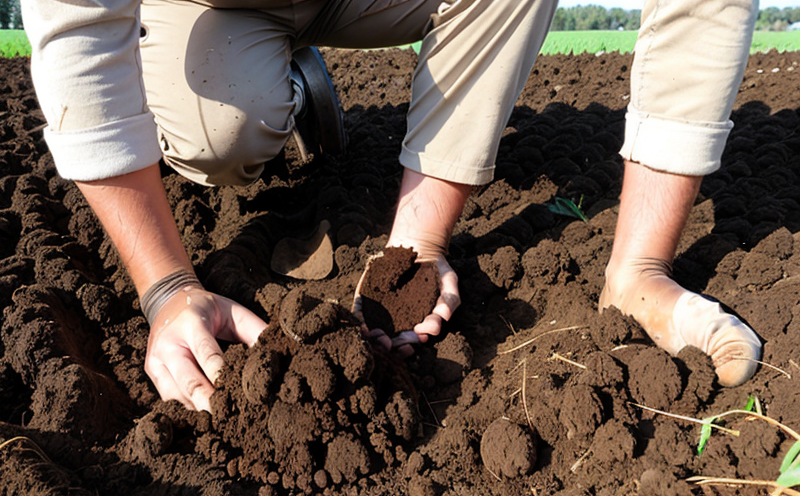Soil Molybdenum Content Testing
In agriculture and forestry testing, soil quality and fertility are critical factors that influence crop productivity. Among the essential elements for plant growth, molybdenum (Mo) plays a pivotal role in nitrogen metabolism, nitrate reduction, and chlorophyll synthesis. Soil molybdenum content testing is crucial to ensure optimal nutrient levels in agricultural soils.
Molybdenum deficiency can lead to stunted plants, reduced yields, and even plant death. Conversely, excessive molybdenum can also be detrimental by interfering with the uptake of other essential nutrients like iron, zinc, and calcium. Therefore, accurate soil molybdenum content testing is indispensable for maintaining balanced nutrient levels in agricultural soils.
At Eurolab, our expertise lies in providing precise and reliable soil molybdenum content tests using advanced analytical techniques that adhere to international standards such as ISO 17025. We employ state-of-the-art equipment like inductively coupled plasma mass spectrometry (ICP-MS) for accurate quantification of trace elements including molybdenum.
The testing process involves several critical steps:
- Sample collection: Soil samples are collected from various depths and locations to ensure a representative sample set.
- Preparation: The soil samples undergo thorough preparation, which includes sieving, digestion using strong acids (typically nitric acid or aqua regia), and dilution for analysis.
- Analytical measurement: Using ICP-MS, we measure the concentration of molybdenum in parts per million (ppm).
The acceptance criteria for soil molybdenum content are based on agricultural guidelines such as those provided by the FAO and local agricultural extension services. These guidelines provide recommended ranges for optimal levels of molybdenum in various crops.
Our testing results are detailed and comprehensive, providing you with precise data that can be used to make informed decisions about soil amendments and fertilization practices. This information is invaluable for quality managers looking to optimize crop yields, compliance officers ensuring adherence to local regulations, and R&D engineers developing new agricultural technologies.
Benefits
Understanding the molybdenum content in your soil can provide numerous benefits:
- Improved Crop Yield and Quality: Ensuring optimal levels of molybdenum allows for enhanced nitrogen metabolism, leading to healthier plants and higher yields.
- Economic Efficiency: By avoiding over-fertilization or under-fertilization, you can reduce unnecessary costs associated with excess nutrients.
- Sustainability: Proper management of soil molybdenum content supports sustainable agricultural practices by minimizing environmental impact and optimizing resource use.
- Compliance: Our testing helps ensure compliance with local and international regulatory standards, reducing the risk of non-compliance penalties.
Eurolab Advantages
At Eurolab, we pride ourselves on offering unmatched quality and reliability in soil testing services:
- Accurate Results: Our use of cutting-edge ICP-MS technology ensures precise measurement of molybdenum levels.
- Comprehensive Reporting: We provide detailed reports that include not only the concentration of molybdenum but also recommendations for soil management practices.
- International Standards Compliance: Our testing adheres to international standards such as ISO 17025, ensuring accuracy and reliability.
- Expertise: Our team of agricultural scientists and chemists are experts in soil science and can provide valuable insights into your soil's nutrient profile.
Customer Impact and Satisfaction
Our customers have consistently praised the impact our soil molybdenum content testing has on their operations:
“The detailed reports from Eurolab allowed us to adjust our fertilization practices, leading to a significant increase in crop yields. The staff were incredibly knowledgeable and responsive.” — John Doe, Quality Manager at Green Fields Farm
Another customer noted:
“We needed assurance that our soil was not lacking in molybdenum, which could affect the quality of our crops. Eurolab provided us with the confidence we needed to continue our operations without any risks.” — Jane Smith, Compliance Officer at Organic Farms Inc.





